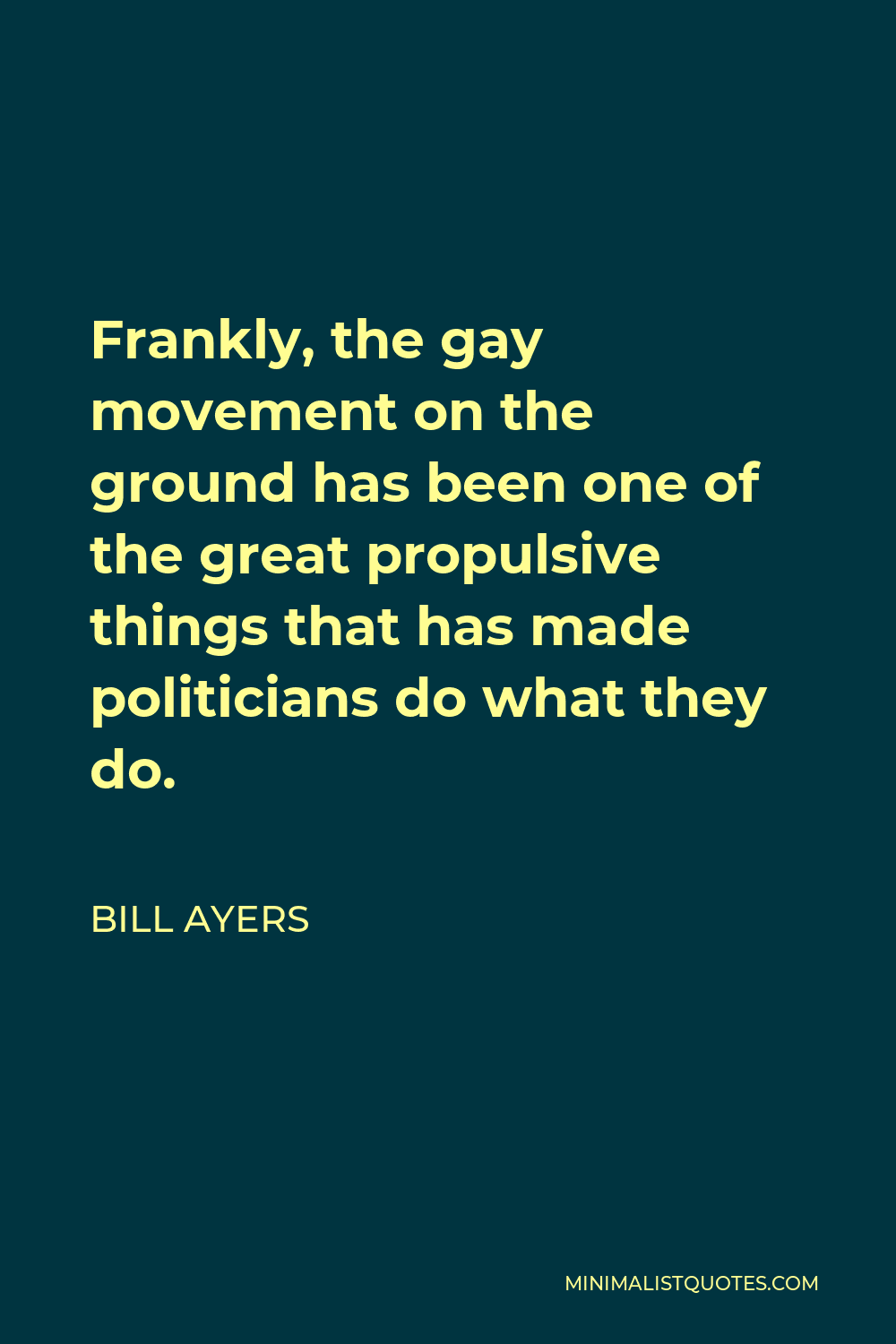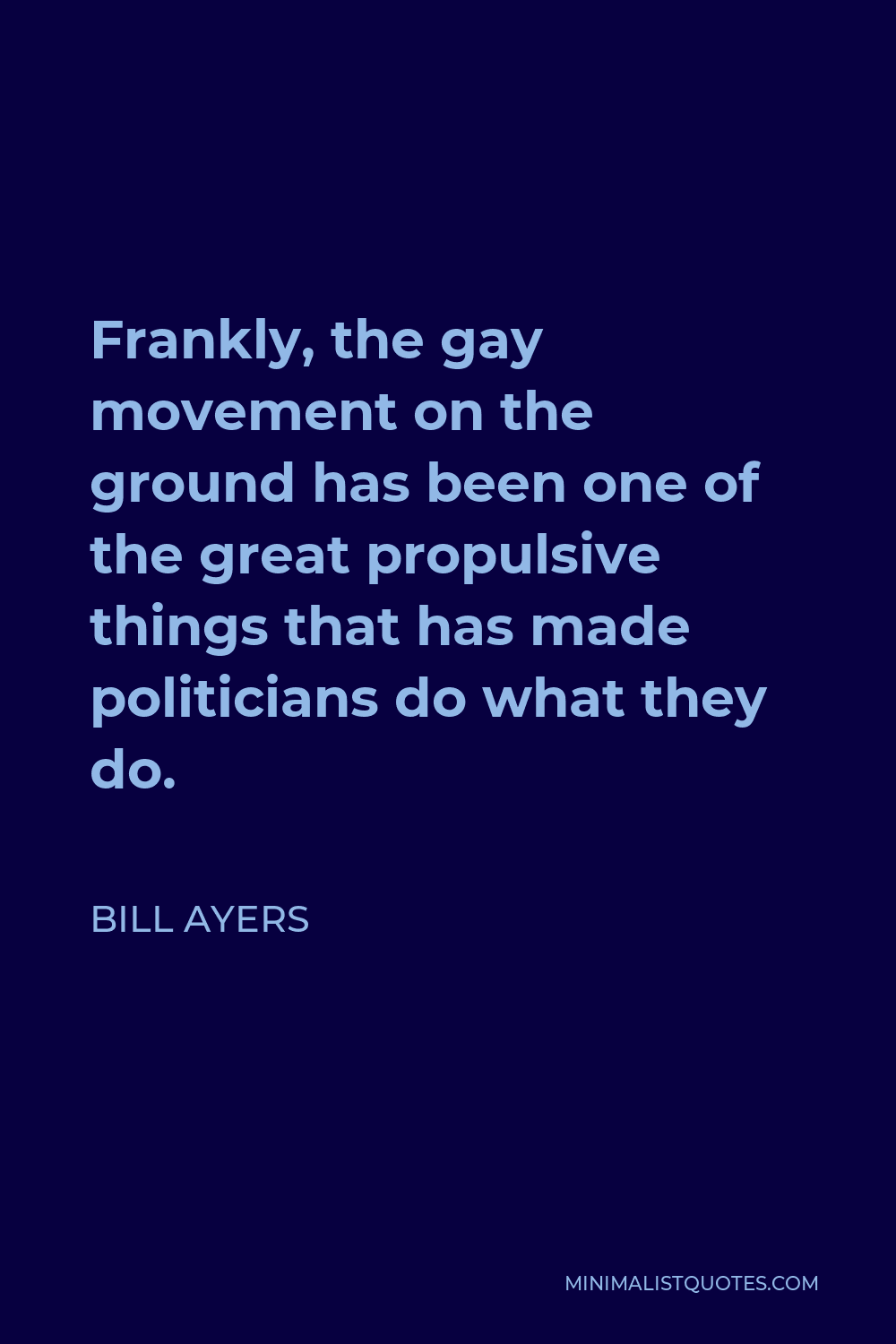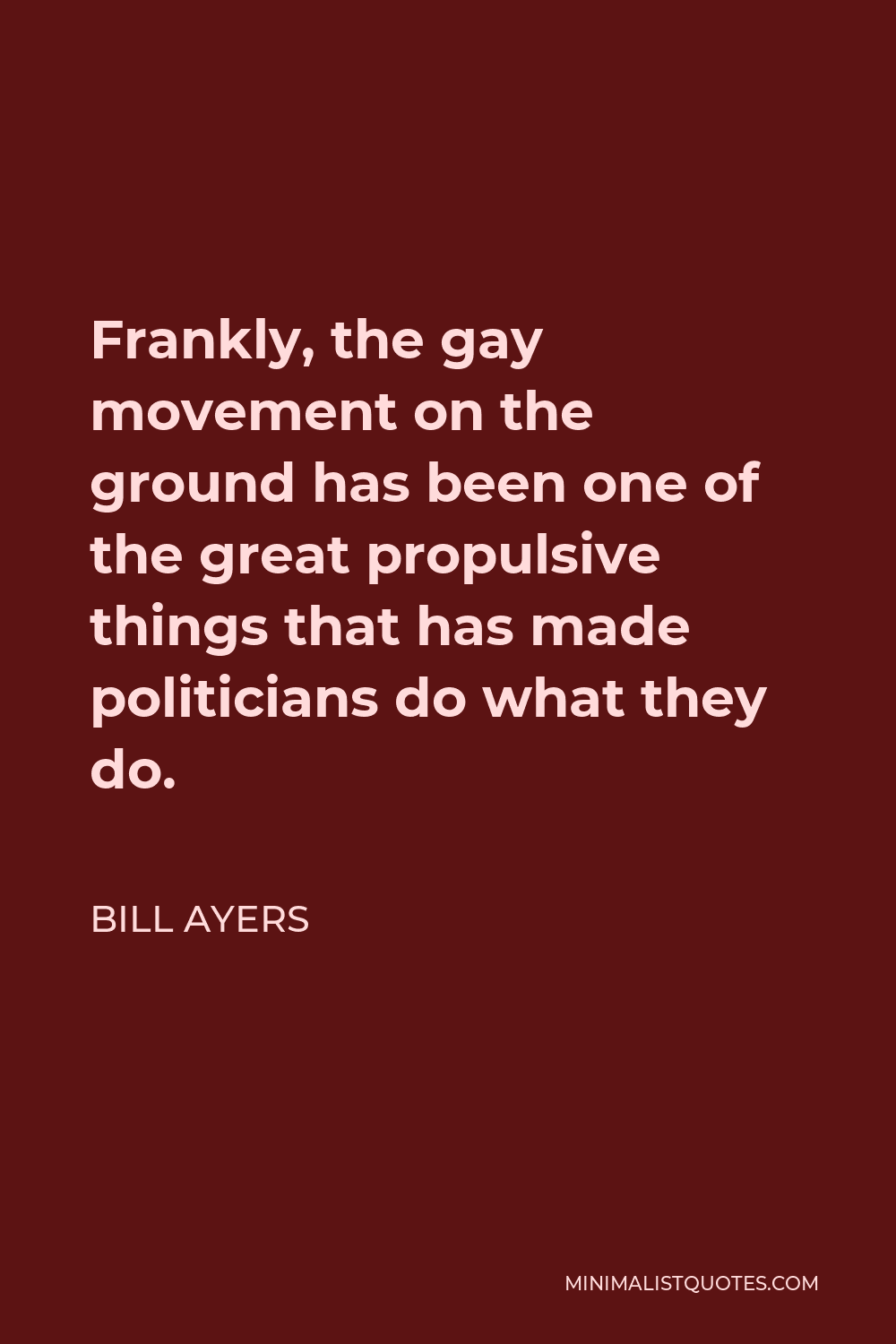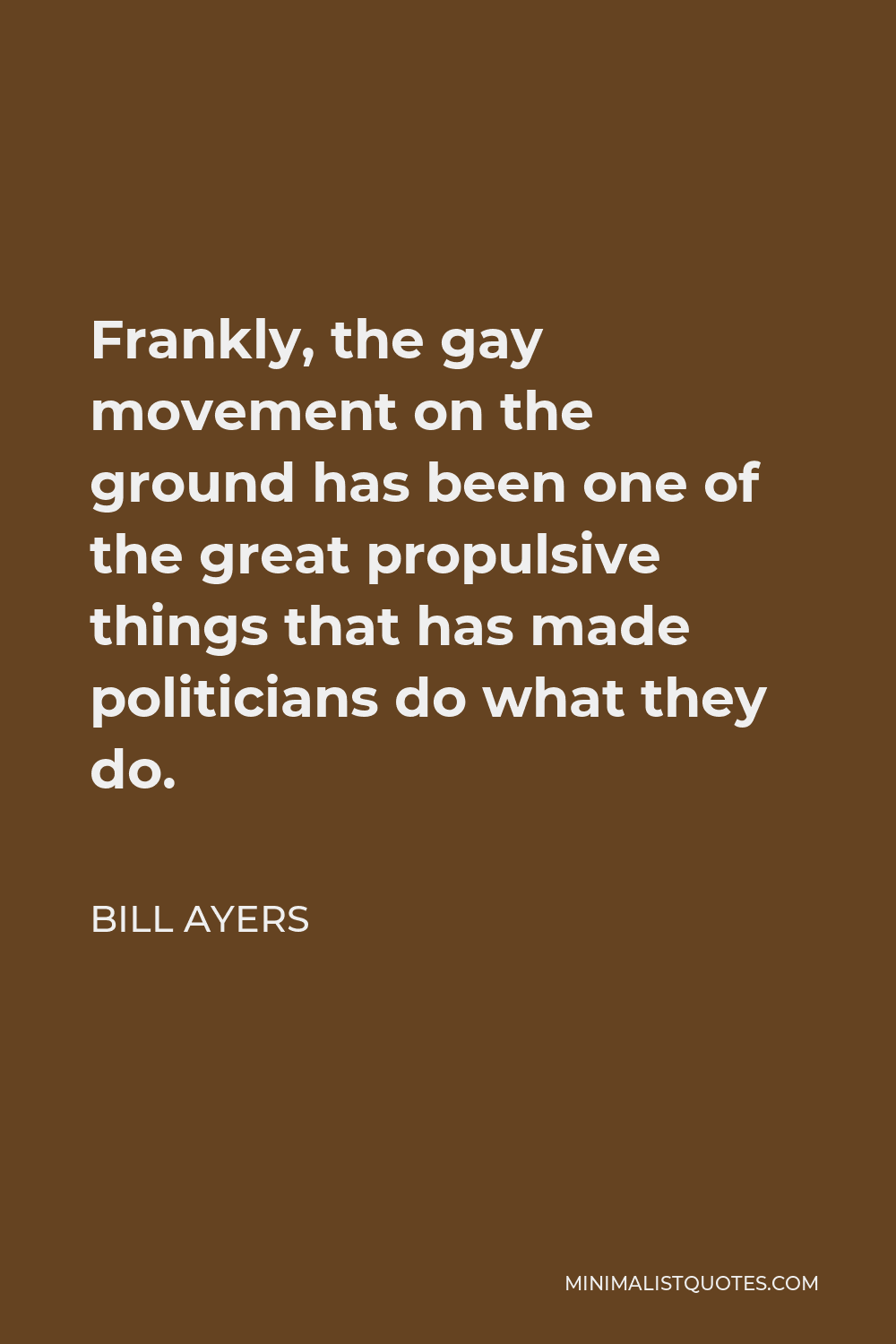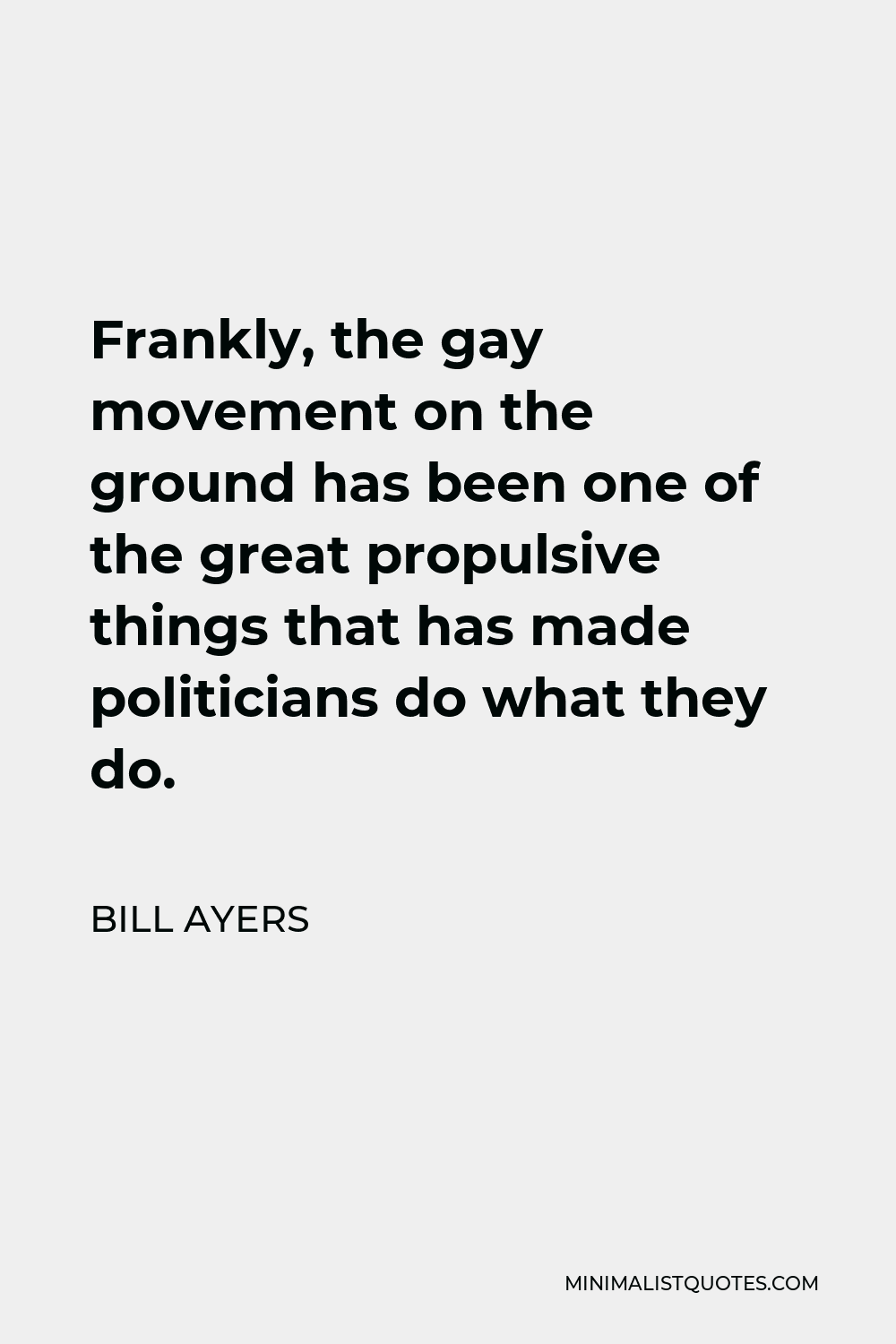Two thousand people a day were being murdered in Vietnam in a terrorist war, an official terrorist war.
BILL AYERSFrankly, the gay movement on the ground has been one of the great propulsive things that has made politicians do what they do.
More Bill Ayers Quotes
-





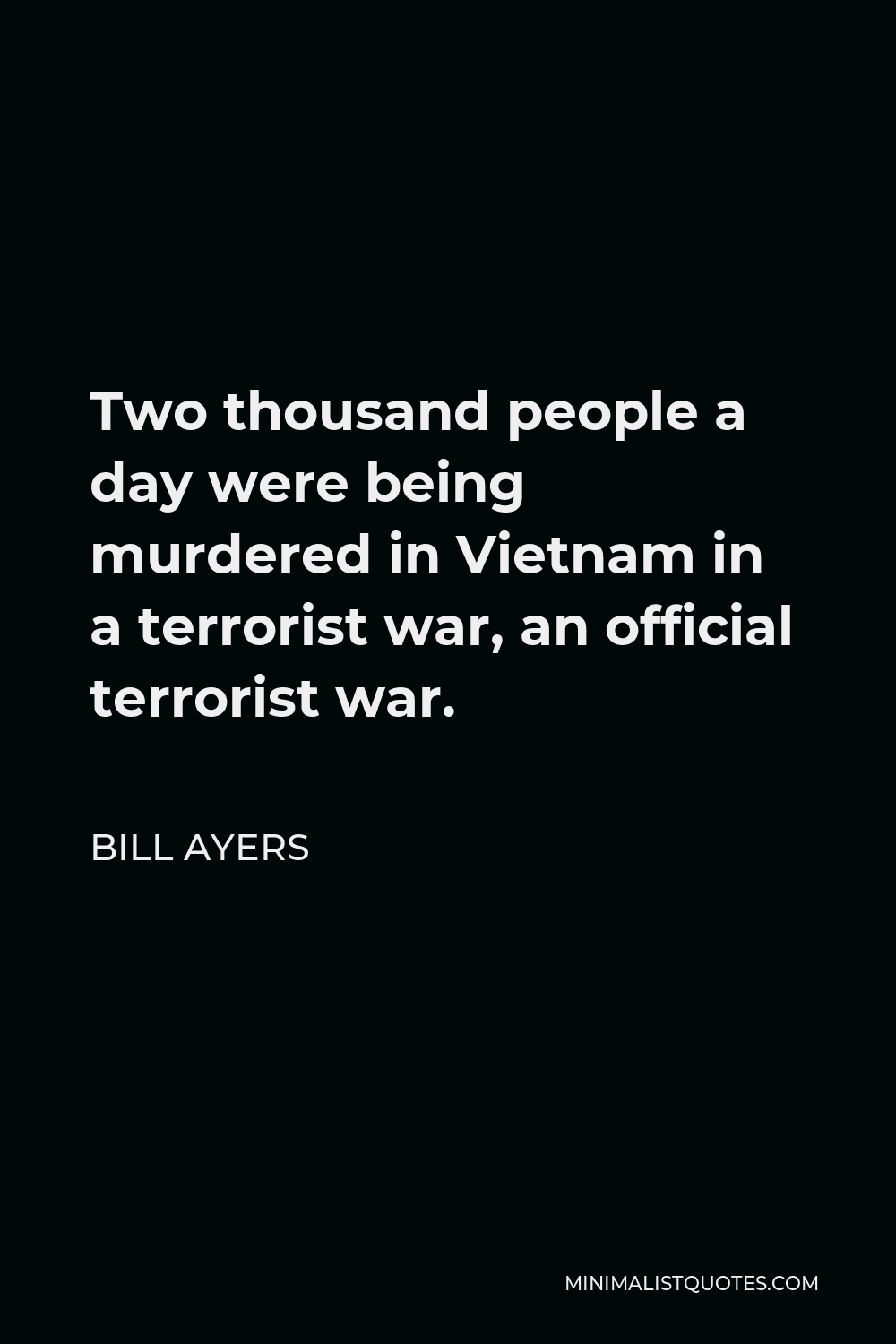
-





![Bill Ayers Quote - [Barack Obama] was running for Senate and he’s saying, I’m not for gay marriage because I’m a Christian. Jump off a bridge! I mean what the hell are you talking about? You know,](https://minimalistquotes.com/images/barack-obama-was-running-for-senate-and-hes-saying.jpg)
[Barack Obama] was running for Senate and he’s saying, I’m not for gay marriage because I’m a Christian. Jump off a bridge! I mean what the hell are you talking about? You know,
BILL AYERS -





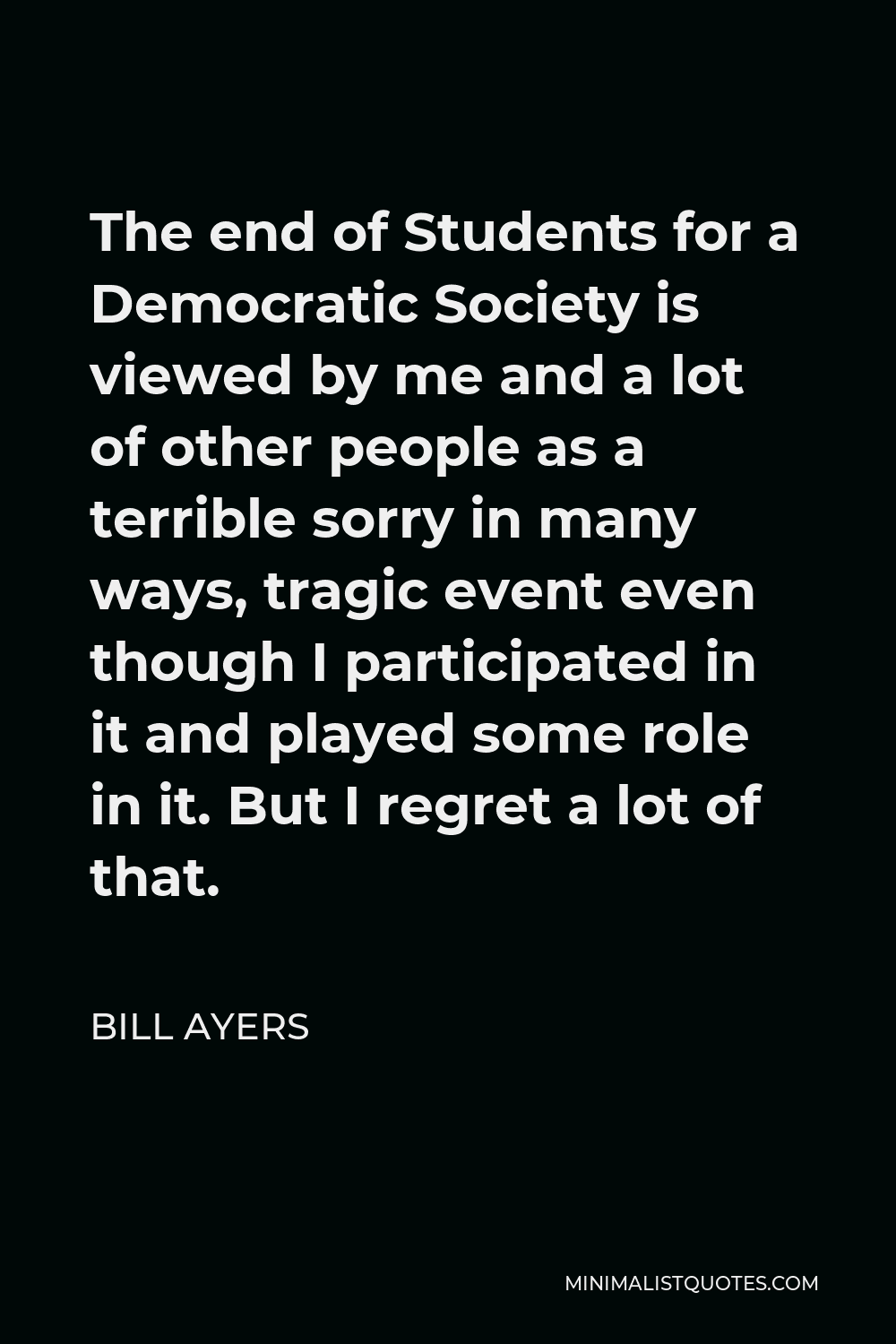
The end of Students for a Democratic Society is viewed by me and a lot of other people as a terrible sorry in many ways, tragic event even though I participated in it and played some role in it. But I regret a lot of that.
BILL AYERS -





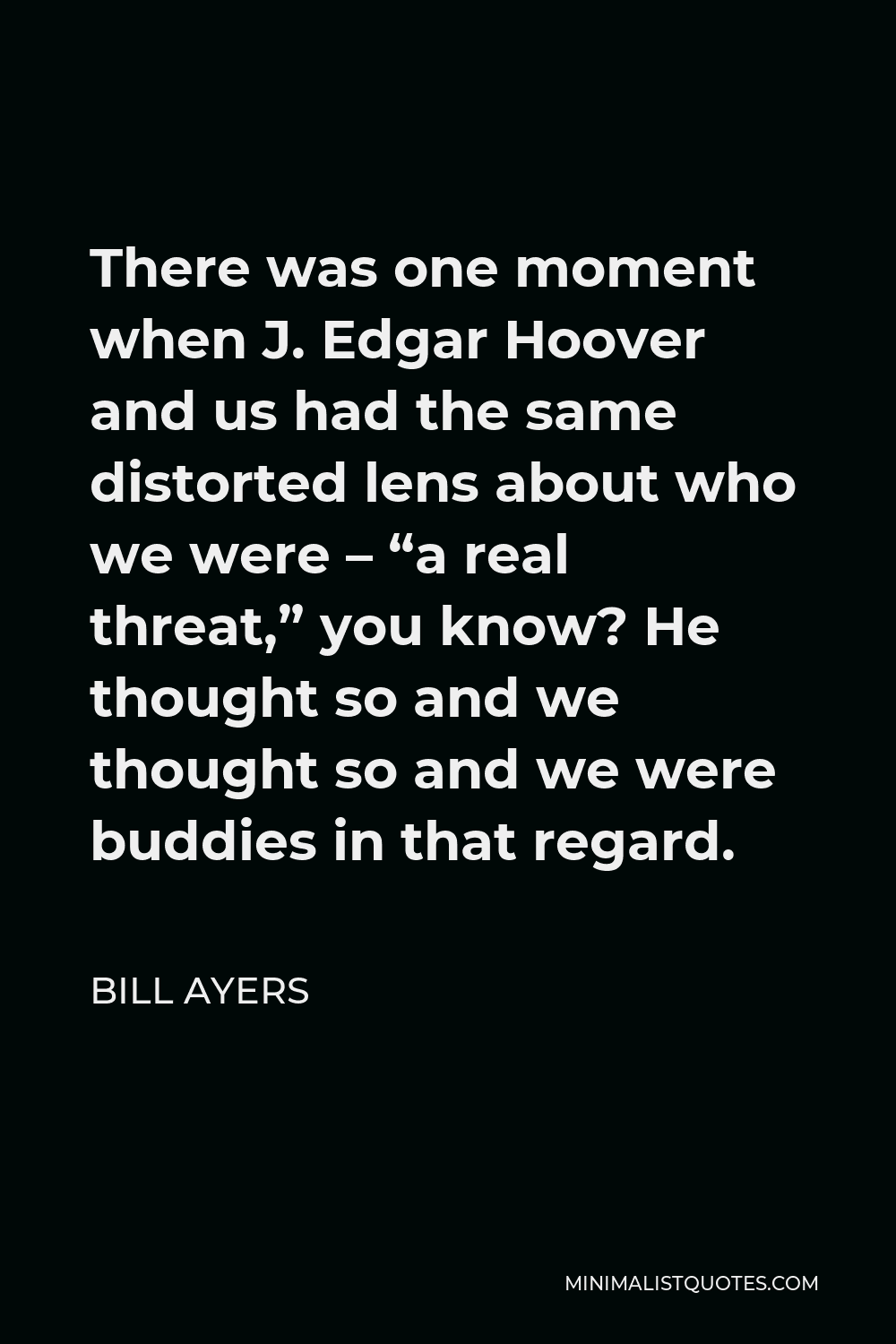
There was one moment when J. Edgar Hoover and us had the same distorted lens about who we were – “a real threat,” you know? He thought so and we thought so and we were buddies in that regard.
BILL AYERS -





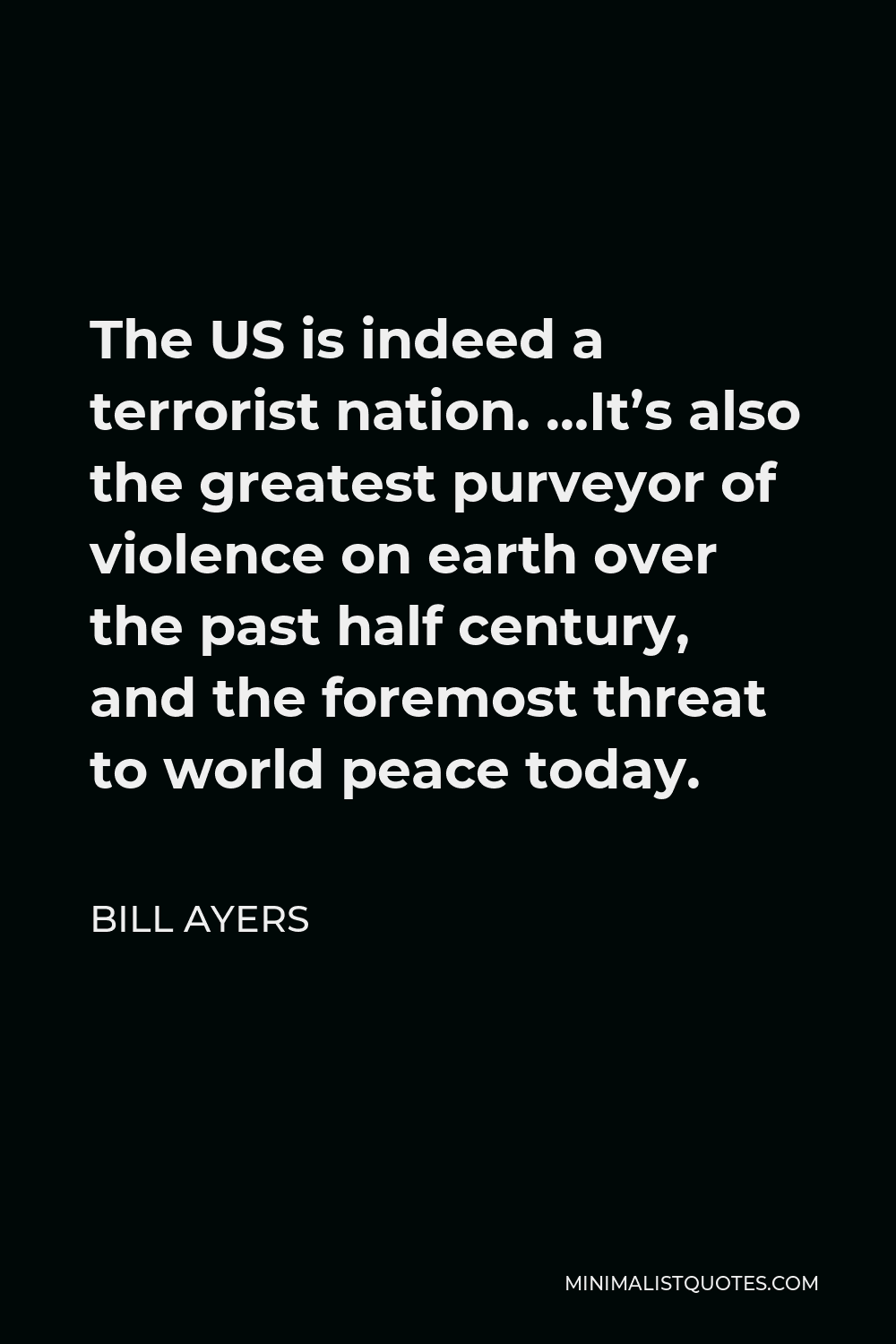
The US is indeed a terrorist nation. …It’s also the greatest purveyor of violence on earth over the past half century, and the foremost threat to world peace today.
BILL AYERS -





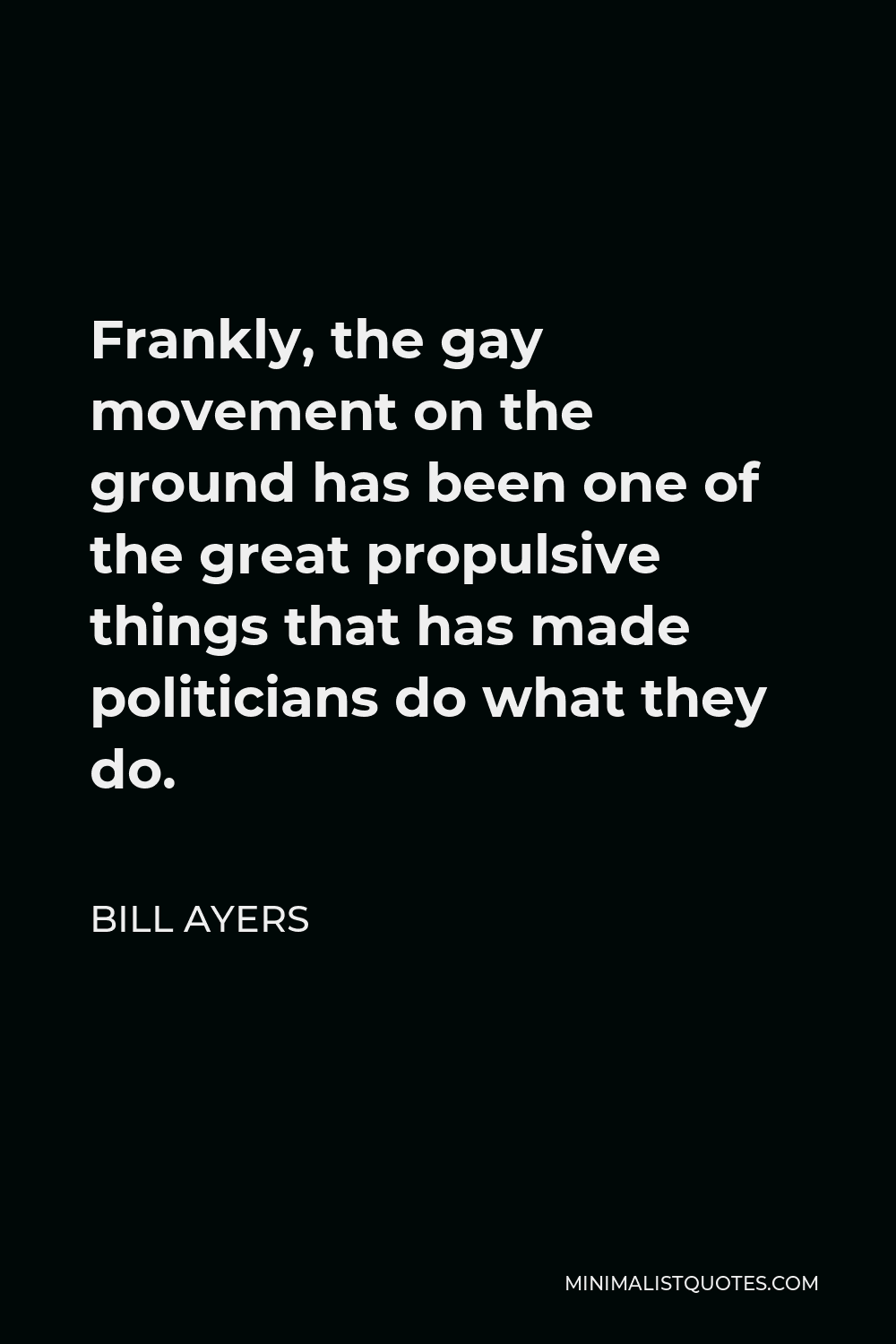
Frankly, the gay movement on the ground has been one of the great propulsive things that has made politicians do what they do.
BILL AYERS -





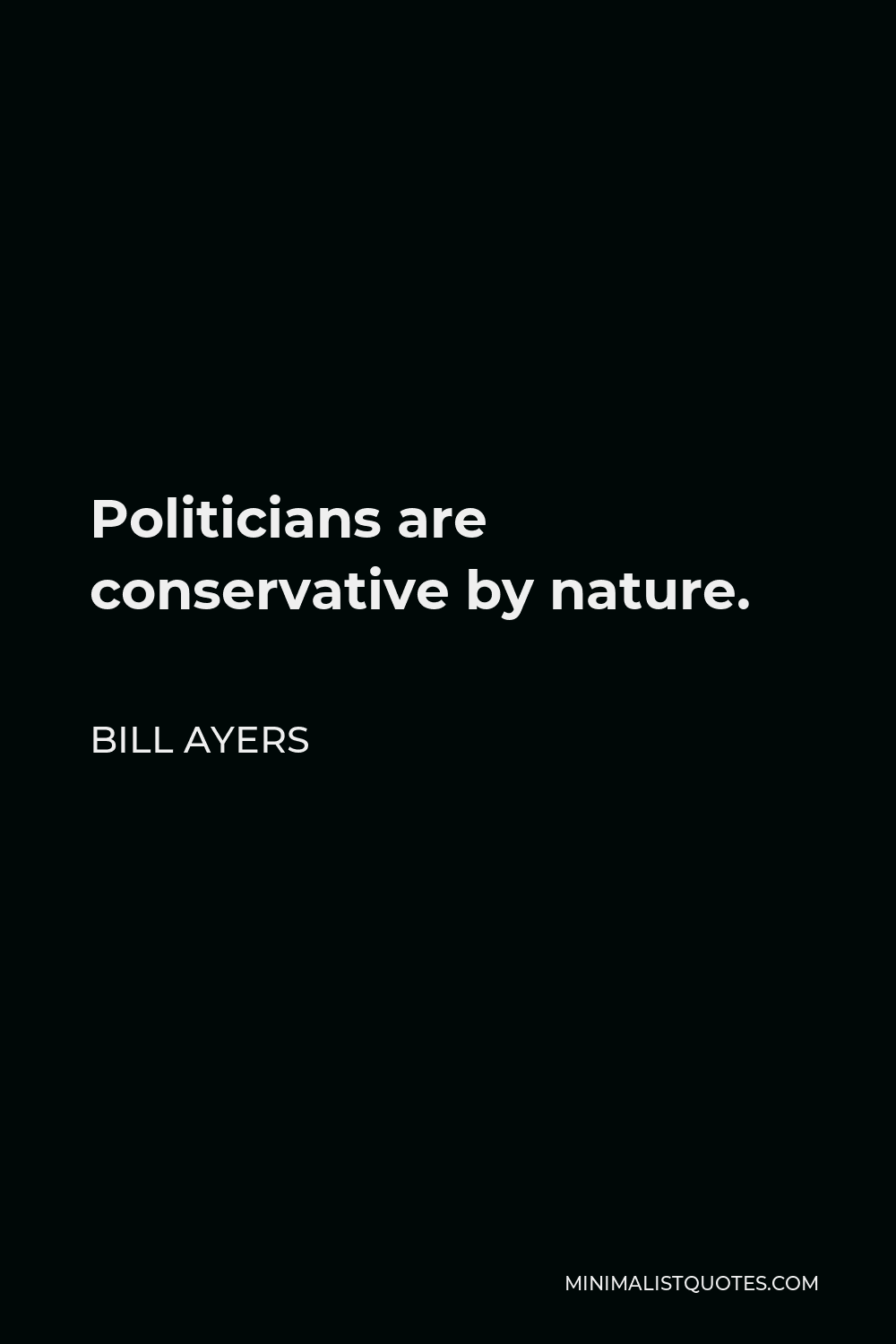
Politicians are conservative by nature.
BILL AYERS -





![Bill Ayers Quote - I’m not disappointed in [Barack] Obama. He said who he is; he’s doing what he said he would do.](https://minimalistquotes.com/images/im-not-disappointed-in-barack-obama-he-said-who-he.jpg)
I’m not disappointed in [Barack] Obama. He said who he is; he’s doing what he said he would do.
BILL AYERS -





![Bill Ayers Quote - We’re actually saying, here’s a principle that I’d like to arc toward. That’s a very different role in life. I didn’t expect [Barack] Obama to go to the root of things. I didn’t expect him to have a principled position on anything. I mean, just pay some moderate attention to the guy.](https://minimalistquotes.com/images/were-actually-saying-heres-a-principle-that-id-lik.jpg)
We’re actually saying, here’s a principle that I’d like to arc toward. That’s a very different role in life. I didn’t expect [Barack] Obama to go to the root of things. I didn’t expect him to have a principled position on anything. I mean, just pay some moderate attention to the guy.
BILL AYERS -





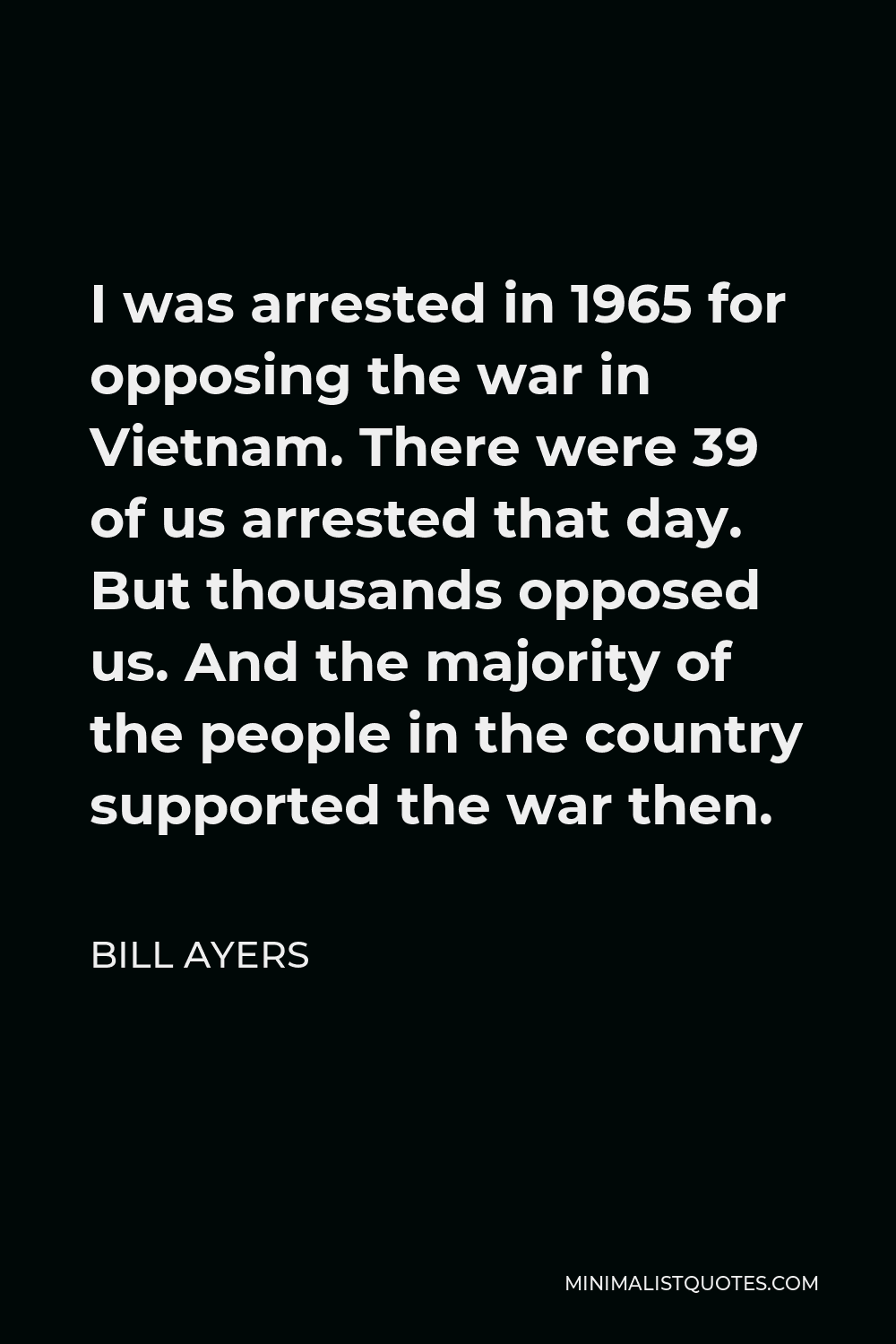
I was arrested in 1965 for opposing the war in Vietnam. There were 39 of us arrested that day. But thousands opposed us. And the majority of the people in the country supported the war then.
BILL AYERS -





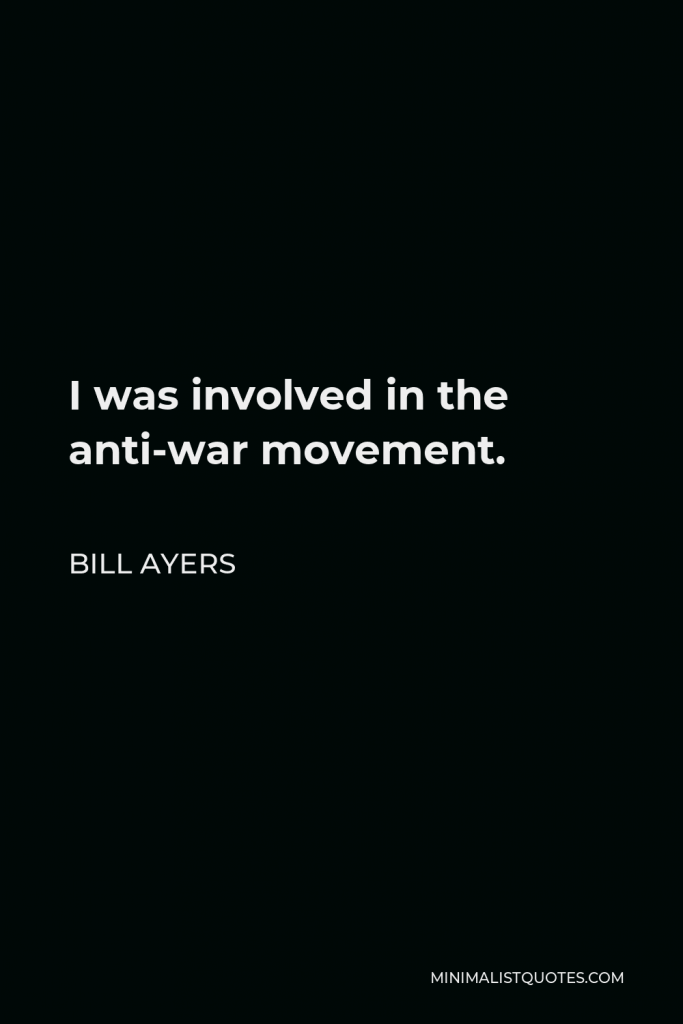

I was involved in the anti-war movement.
BILL AYERS -





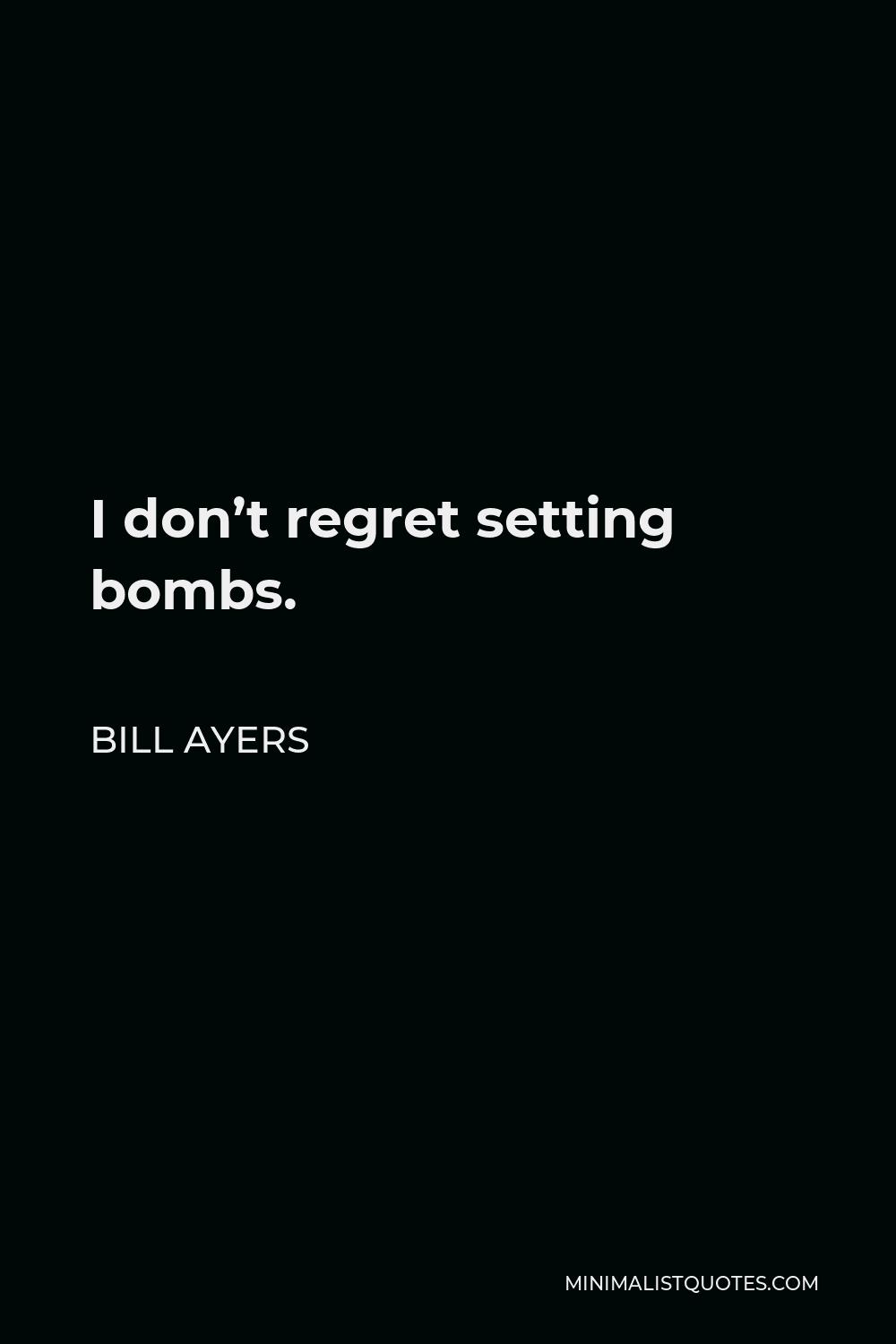
I don’t regret setting bombs.
BILL AYERS -





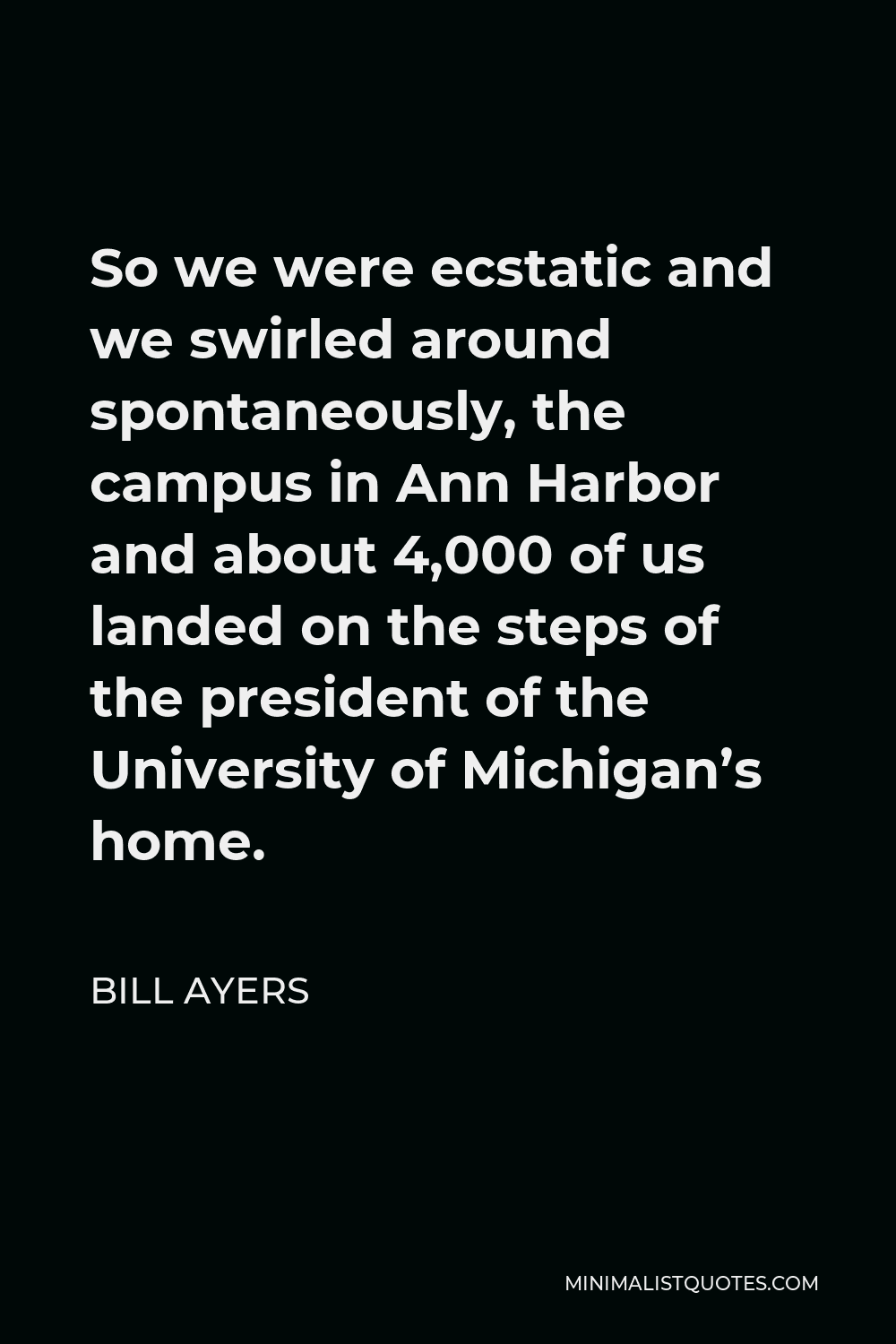
So we were ecstatic and we swirled around spontaneously, the campus in Ann Harbor and about 4,000 of us landed on the steps of the president of the University of Michigan’s home.
BILL AYERS -





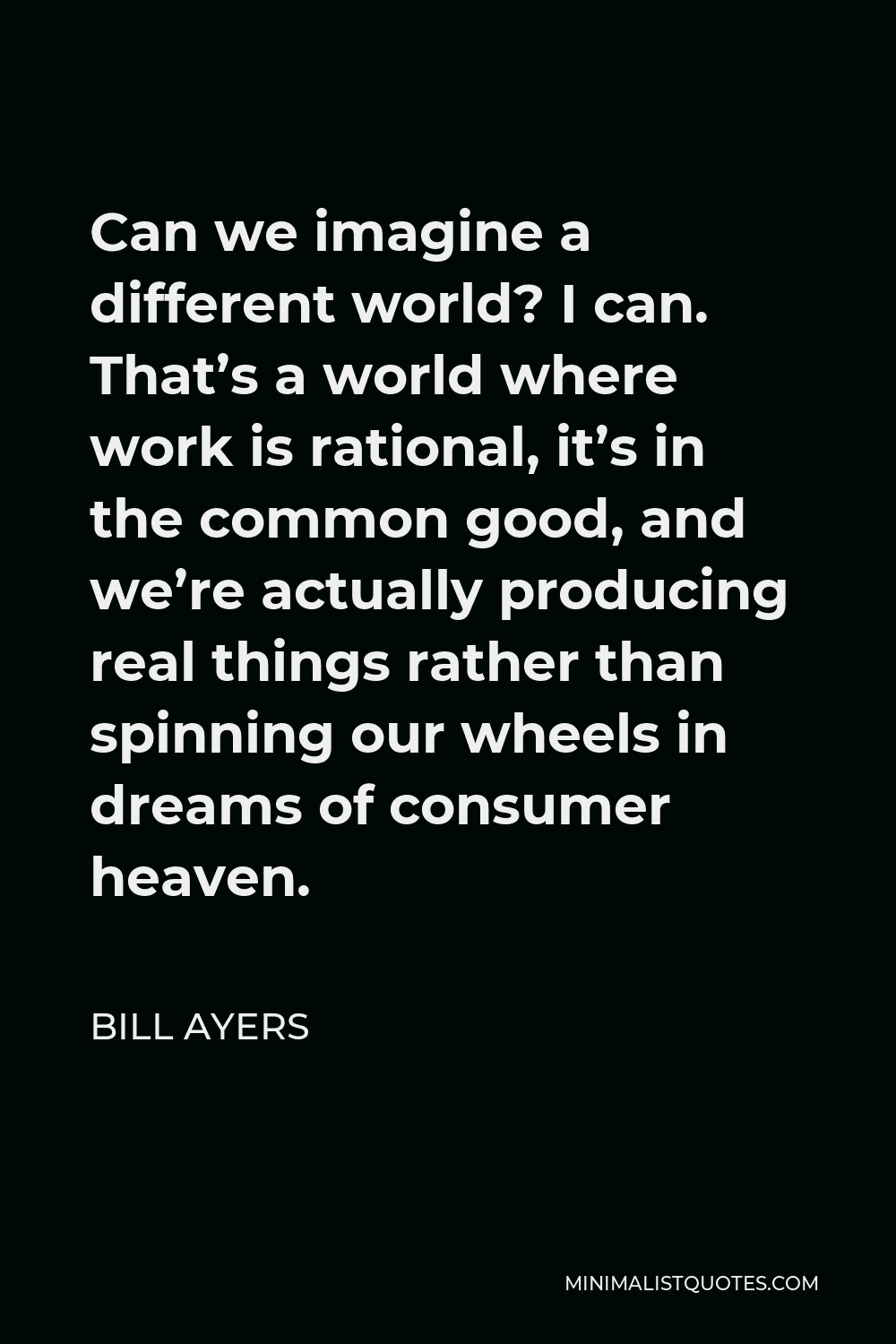
Can we imagine a different world? I can. That’s a world where work is rational, it’s in the common good, and we’re actually producing real things rather than spinning our wheels in dreams of consumer heaven.
BILL AYERS -





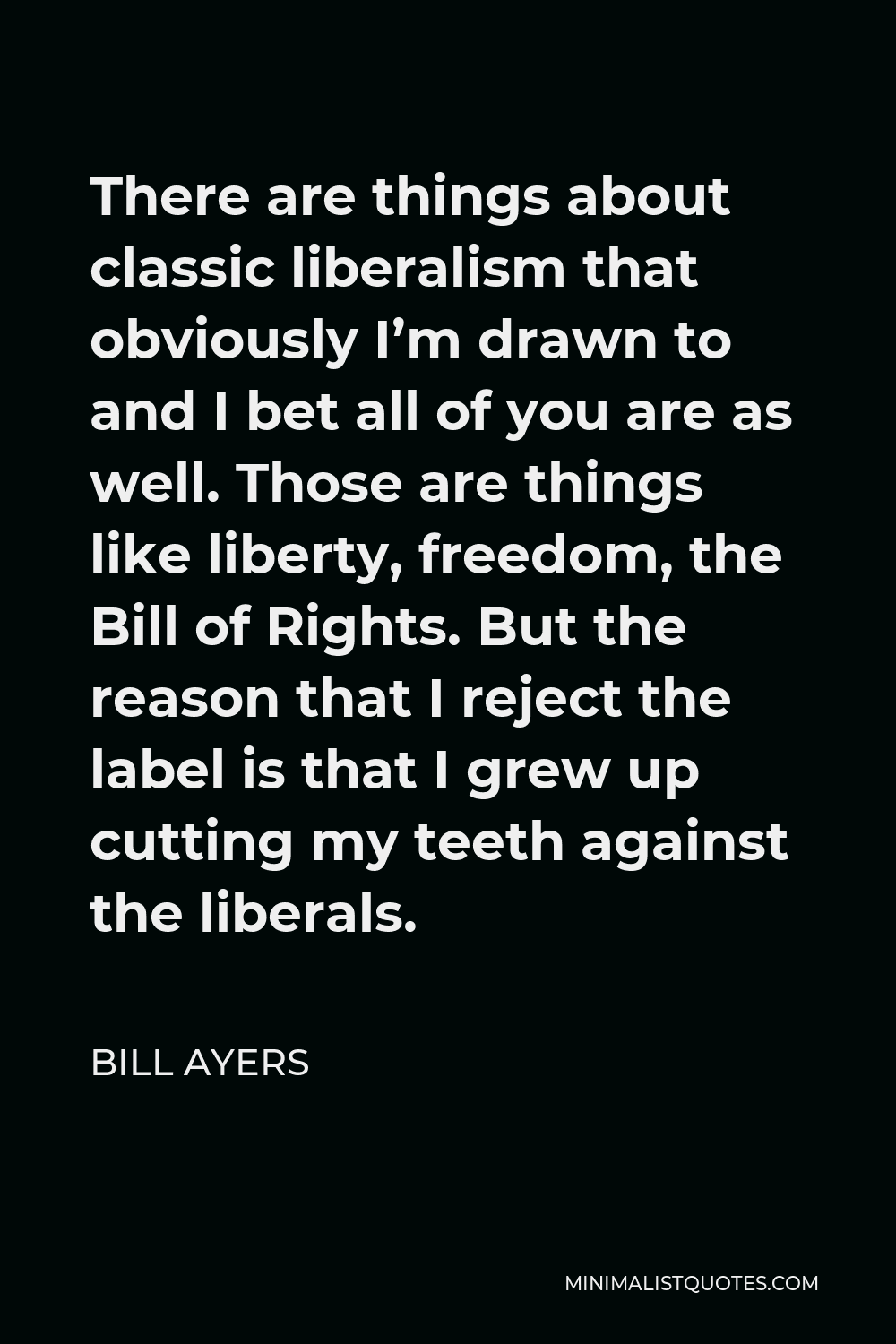
There are things about classic liberalism that obviously I’m drawn to and I bet all of you are as well. Those are things like liberty, freedom, the Bill of Rights. But the reason that I reject the label is that I grew up cutting my teeth against the liberals.
BILL AYERS -





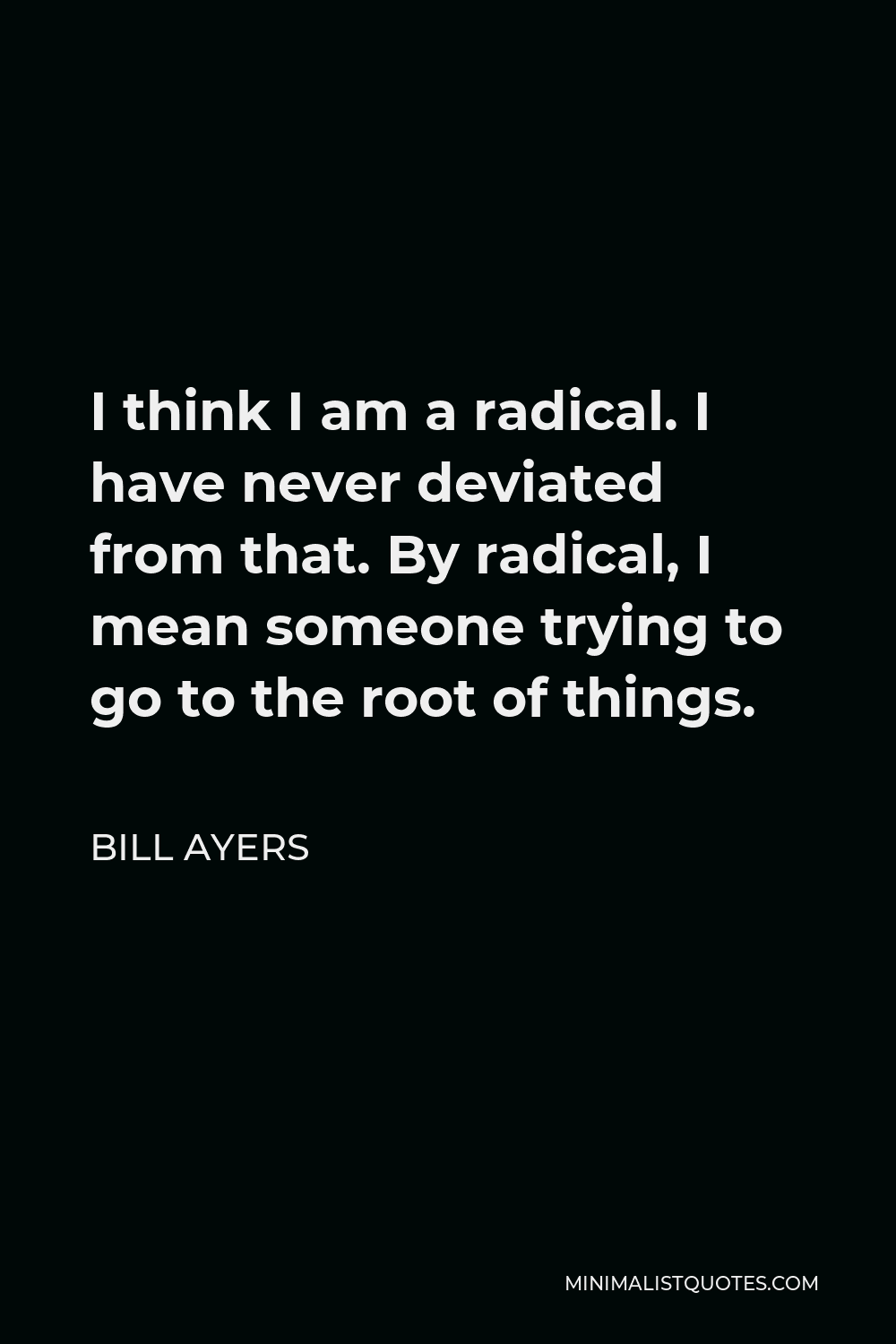
I think I am a radical. I have never deviated from that. By radical, I mean someone trying to go to the root of things.
BILL AYERS
